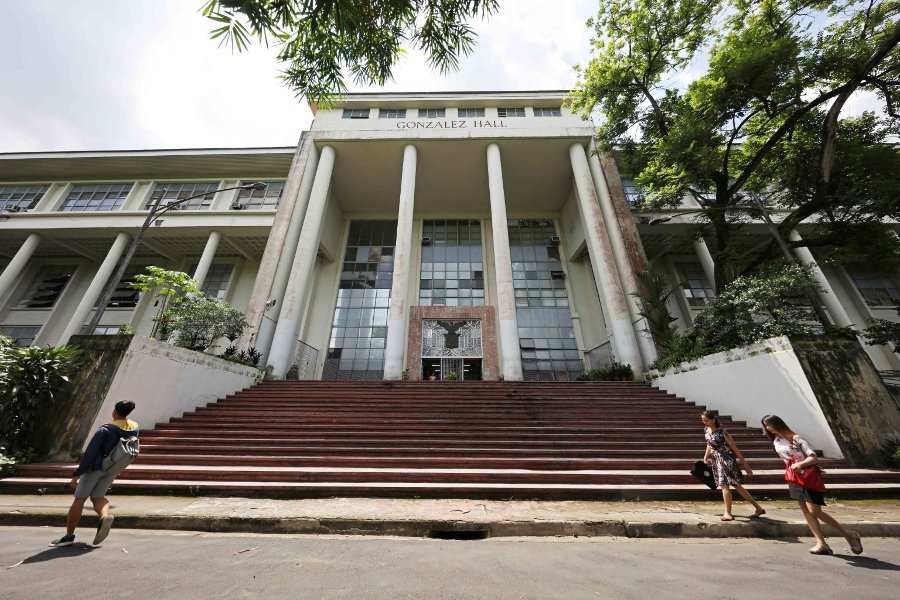The University of the Philippines Library Council has denounced an order by a regional office of the Commission on Higher Education (CHED) calling for the removal of “subversive materials” from libraries and online platforms in the Cordillera Administrative Region (CAR), saying that “book purges are practiced by dictatorships, not democracies.”
“We therefore call on our fellow librarians and university officials to protect our libraries from any form of censorship, and to resist any actions that will compromise academic freedom,” the University Library Council (ULC) said in a statement issued on Nov. 6. “Since we believe in democracy, as our critics claim to do, we must remain open to ideas not necessarily our own and respect the right of our citizens to read about them in our libraries,”
In a memorandum released last Oct. 21, the CHED office in the CAR defined subversive materials as literature, references, publications, resources and items that contain pervasive ideologies of Communist-terrorist groups (CTGs).” It said the memo supported President Rodrigo Duterte’s Executive Order (EO) No. 70 creating the National Taskforce to End Local Communist Armed Conflict (NTF-ELCAC). It also cited a Sept. 22 meeting of the ELCAC regional task force.
The UP system-wide ULC said that while the memo does not require librarians and heads of universities and colleges in the region to ban “subversive” materials from their libraries, it has a compelling effect on these institutions.
“As such, it threatens to undermine the very foundation of the academic freedom guaranteed by the Constitution to all institutions of higher learning, whether public or private. That freedom rests on the untrammeled flow of information and knowledge contained in, among others, books, periodicals, documents, recordings, and such other media as libraries collect and distribute,” the ULC statement noted.
The ULC, created in 1986, is chaired by UP’s Vice-President and Vice-Chancellors for Academic Affairs with the librarians and student representatives as members. As gatekeepers of knowledge, the council said it was “ethically- bound to resist any form of political interference” that would limit access of students and scholars to learning materials.
The ULC statement came a week after the Office of the Chancellor Executive Staff of UP Diliman released a statement denouncing the removal of publications related to the peace talks between the government and the National Democratic Front of the Philippines (NDFP) by three institutions. The Aklan State University, Isabela State University, and Kalinga State University threw out the materials on the behest of the military and the local ELCAC.
“Ang pagtatanggal ng mga piling materyales ay isang malinaw na halimbawa ng censorship at pagkitil sa kaalaman. Pag-abandona ito sa kalayaang mag-isip, magtanong, at magsaliksik; at sa kalayaang tumuklas ng katotohanan batay sa sariling kakayahan ng mga mag-aaral,” the statement said.
(“The removal of selected materials is a clear example of censorship and slaughter of knowledge. This is abandonment of liberal thinking, questioning, and researching; and the freedom to discover the truth based on the capabilities of the students.”)
CHED Chairman Prospero de Vera, however, said the decision to remove the materials donated by the NDFP was made by officials of these universities and should be respected by UP.
But the UP statement pointed out that protecting young people cannot be achieved by limiting what students can read.
“Sa halip ay nararapat natin silang hikayating buksan ang kanilang isipan. Hayaan natin silang magtanong at bumuo ng kanilang mga sariling konklusyon,” it read.
(“Instead, we should encourage them to open their minds. Let them ask questions and draw their own conclusions.”)
Censorship and the demise of critical thinking among students
This was echoed by ULP, stressing that “insurgencies are contained by addressing their root causes, not by banning books that explain how and why they happen.” The need to “seek and promote the truth” is important, especially at this time when disinformation and misinformation are widespread, the council noted.
“Libraries serve society as gateways to knowledge and culture, as platforms for learning, preserving and sharing knowledge, and shaping new ideas and perspectives. Like our laboratories, they should be protected as safe spaces for intellectual inquiry and research, beyond the transitory agenda of politicians in power and their instrumentalities,” it further said.
